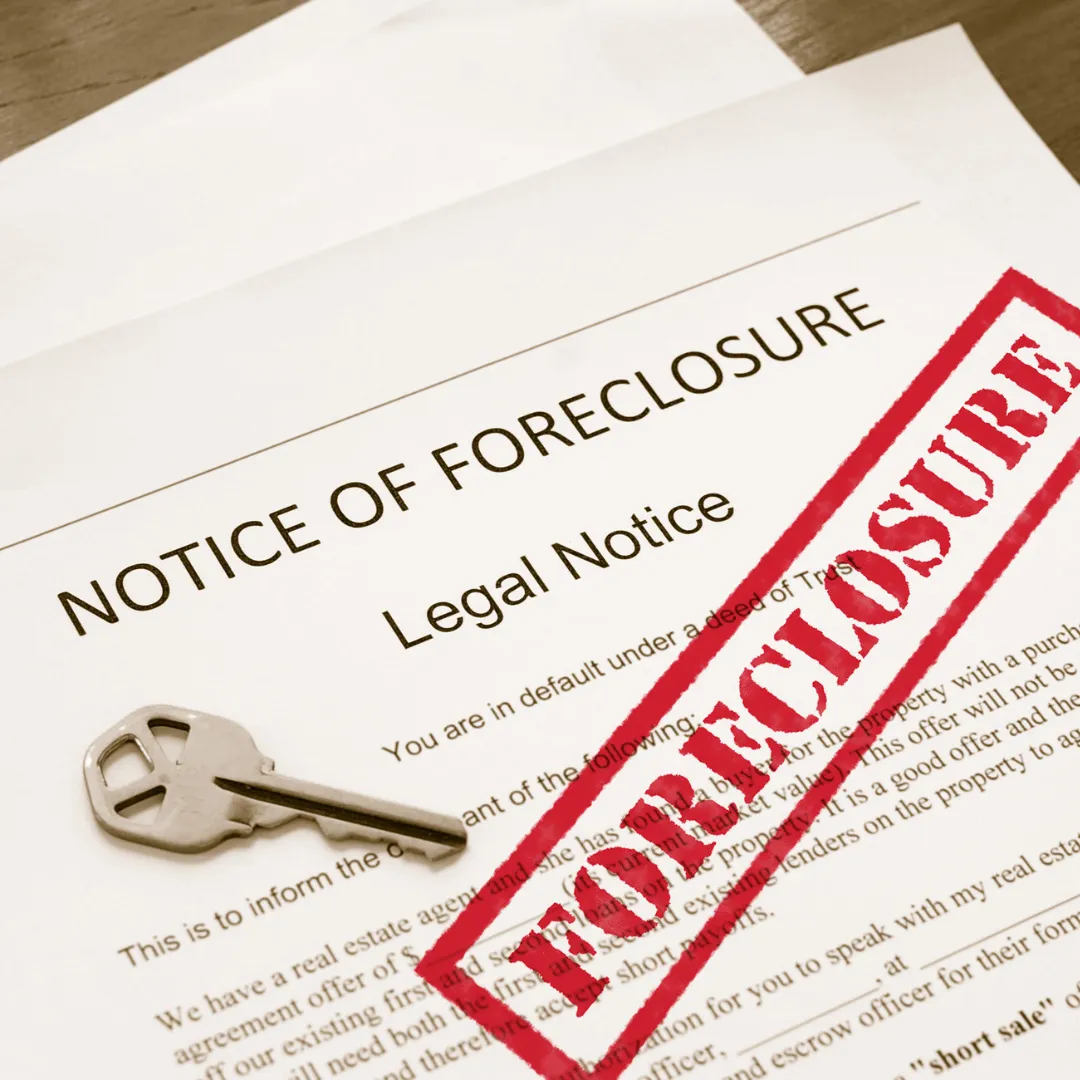
What is Foreclosure?
Imagine this: your friend bought their dream home, put their heart into decorating it, and then life threw a curveball—like job loss, medical bills, or unexpected expenses. Suddenly, making mortgage payments feels impossible. That’s where foreclosure comes in—a term you’ve probably heard but may not fully understand. Don’t worry, we’ll break it down in a way that makes sense, no confusing jargon, just real talk.
What Does Foreclosure Mean?
Simply put, foreclosure is a legal process where a lender takes back a property because the homeowner isn’t keeping up with their mortgage payments. It’s the bank or mortgage company’s way of recovering the money they lent you.
Foreclosure can feel scary because it threatens your home and credit score. But understanding it early gives you options to prevent it or handle it smartly.
Related: Foreclosure Prevention Tips
The Foreclosure Process Explained
Foreclosure isn’t instant. It’s a multi-step process that usually takes several months. Here’s a general breakdown:
1. Missed Payments Trigger Warning Notices
The first sign is typically a late payment notice. Lenders want to work with you if possible, so they’ll send reminders, fees, and warnings.
Tip: Never ignore these notices. Responding early can open doors to loan modifications or repayment plans.
2. Pre-Foreclosure Stage
After multiple missed payments, your lender may issue a pre-foreclosure notice, sometimes called a Notice of Default. This is your chance to act before things get more serious. You might explore:
Loan modification
Repayment plans
Selling the home to pay off the mortgage
3. Foreclosure Auction
If the debt isn’t resolved, the property may go to a foreclosure auction. Here, the lender sells your home to recover their money. Auctions are public, and the highest bidder takes ownership.
4. Post-Foreclosure
After an auction, if no one buys the property, it becomes a Real Estate Owned (REO) property owned by the bank. The bank may sell it themselves or work with real estate agents to find a buyer.
Types of Foreclosure
There are a few different types of foreclosure, and knowing the differences is important:
Judicial Foreclosure
This type goes through the court system. The lender must file a lawsuit to get the property back. It tends to take longer but gives homeowners more time to respond.
Non-Judicial Foreclosure
Here, the lender can reclaim the property without going to court, depending on state laws. It’s usually faster and can be more stressful for homeowners.
Strict Foreclosure
Less common, this allows the lender to take ownership automatically if the debt isn’t paid by a certain deadline.
Causes of Foreclosure
Why do people face foreclosure? Usually, it’s a combination of financial strain and unexpected life events. Common causes include:
Job loss or reduced income
Medical bills or emergency expenses
Poor financial planning
Adjustable-rate mortgages that suddenly increase
Divorce or separation
Understanding these causes can help you avoid foreclosure or act quickly if it becomes a risk.
Consequences of Foreclosure
Facing foreclosure can be overwhelming. Here’s what to expect:
Impact on Credit Score
Foreclosure can drop your credit score by 100–200 points or more, making future loans harder to get.
Loss of Home Equity
Any equity you’ve built in your home may be lost, which is why acting early is critical.
Emotional Stress
Beyond finances, foreclosure can be emotionally taxing. Feeling stressed or anxious is normal—seeking help early can prevent long-term strain.
How to Stop or Avoid Foreclosure
Here’s the good news: foreclosure isn’t always inevitable. If you catch it early, there are options:
1. Loan Modification
Your lender might adjust the terms of your mortgage to make payments more manageable.
2. Repayment Plan
You may be able to catch up on missed payments through a structured plan with your lender.
3. Forbearance Agreement
This allows temporary reduction or suspension of payments during a financial hardship.
4. Selling Your Home
If keeping the home isn’t possible, selling before foreclosure can preserve your credit and help you avoid extra fees.
Tips for Navigating Foreclosure
Communicate Early: Don’t ignore letters or calls from your lender.
Seek Professional Help: Foreclosure specialists or real estate agents experienced with distressed properties can guide you.
Know Your Rights: State laws vary, so understanding your local foreclosure regulations is critical.
Explore Financial Assistance Programs: Federal and local programs may help homeowners in crisis.
Foreclosure Myths vs. Facts
Let’s clear up some common misconceptions:
Myth: “You’ll be homeless immediately.”
Fact: Foreclosure is a process; you usually have months to act.Myth: “You can’t buy another home for decades.”
Fact: While foreclosure impacts your credit, many lenders will approve you for a new mortgage in a few years.Myth: “The bank can take your belongings.”
Fact: In most cases, banks can only take the property itself, not your personal possessions.
When to Seek Help
If you’re behind on payments or just worried about foreclosure, reach out immediately. Professional guidance can make a huge difference. Even just exploring your options early can save money and stress.
Related: Nationwideforclosurellc.com
Summary: Key Takeaways
Foreclosure is the legal process of reclaiming a home due to missed mortgage payments.
It typically progresses from missed payments → pre-foreclosure → auction → post-foreclosure.
There are multiple types of foreclosure (judicial, non-judicial, strict) depending on state laws.
Causes include job loss, medical bills, financial mismanagement, and life events.
Consequences affect your credit score, home equity, and emotional well-being.
Acting early—through loan modifications, repayment plans, or selling—can prevent or reduce damage.
Seek professional advice and know your rights to navigate the process successfully.
Take Action Today
Don’t wait until it’s too late. If you or someone you know is facing foreclosure, help is available. Contact us at 682-348-4112 or email [email protected] for a free consultation. We’re here to guide you every step of the way, helping you understand your options and protect your financial future.